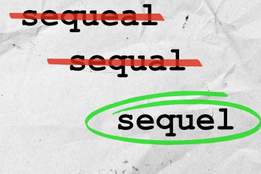Word of the Day
: November 8, 2024feign
playWhat It Means
To feign something (such as surprise, ignorance, or sleep) is to pretend to feel or be affected by it.
// I would never feign illness just to get out of a test.
feign in Context
“After Eric’s betrayal, Harper has landed at a fund dedicated to so-called impact investing in eco-friendly companies, a real-life financial trend that dovetails with a core ‘Industry’ theme: reflexive cynicism toward for-profit institutions that feign social consciousness.” — Alison Herman, Variety, 2 Aug. 2024
Did You Know?
Of the many ways Ferris Bueller feigns illness—that is, pretends to be sick—to avoid going to school in the 1986 comedy film Ferris Bueller’s Day Off, arguably the most ingenious involves tucking a mannequin version of himself under the blankets of his bed to fool his family. This method of deception provides not only entertaining hijinks but also clues to the origins of the word feign itself. Today, feign is all about faking it, but it hasn’t always been so. One of the word’s oldest meanings is “to fashion, form, or shape,” which echoes that of its Latin source, the verb fingere, meaning “to mold, fashion, make a likeness of, or pretend to be.” It’s one thing to fashion a likeness of oneself as an art project, and another to try and convince your family it’s really you in order to play hooky; it’s this element of deceit that infused other early meanings of feign including “to lie,” “to counterfeit,” and “to forge a document.” Today, people mostly use feign to suggest the act of forming, or giving shape to, false appearances—not of personas (such as, say, that of the Sausage King of Chicago), but rather conditions or feelings, such as happiness, sleep, or outrage.











